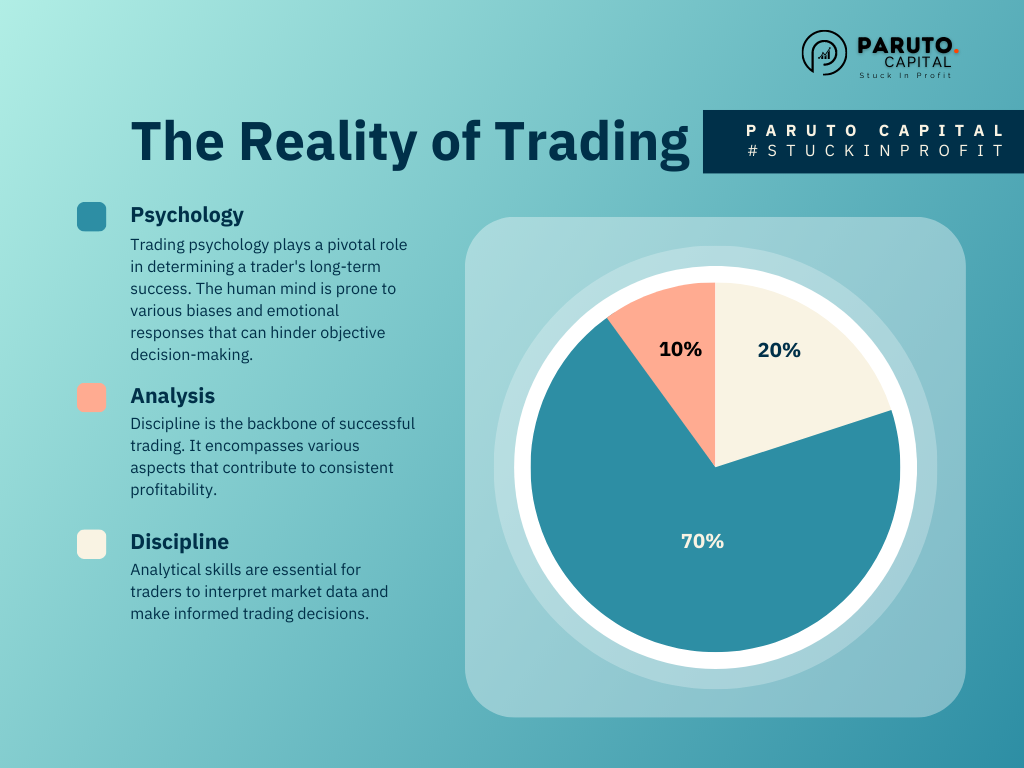Introduction
Foreign exchange (Forex) trading is not just a battle of charts, numbers, and economic indicators; it’s also a psychological arena where traders must navigate their emotions, instincts, and discipline. The human mind plays a crucial role in Forex trading, influencing decisions that can lead to either success or failure. In this article, we will delve into the power of psychology in Forex trading, exploring the impact of emotions, mindset, and discipline on a trader’s journey.
Understanding Emotions in Forex Trading
1. Fear and Greed
Two of the most powerful emotions that affect Forex traders are fear and greed. Fear can cause traders to hesitate, miss opportunities, or make hasty exits from positions. On the other hand, greed can lead to overtrading, excessive risk-taking, and ignoring risk management principles. Balancing these emotions is essential for effective decision-making.
2. Patience and Impulsiveness
Successful Forex traders are patient. They understand that the market can be unpredictable, and not every trade will result in instant profit. Impulsive decisions often lead to losses. Patience allows traders to wait for the right setups and avoid chasing the market.
3. Regret and Revenge Trading
Regret over past losses can be paralyzing, causing traders to make irrational decisions to recoup their losses. This often results in a downward spiral known as “revenge trading.” It’s crucial to accept losses as part of the trading game and move on without emotional baggage.
The Trader’s Mindset
1. Discipline and Consistency
Discipline is the cornerstone of successful Forex trading. It involves sticking to a well-defined trading plan, adhering to risk management rules, and resisting impulsive actions. Consistency in following a trading strategy helps minimize emotional interference.
2. Positivity and Adaptability
A positive mindset can help traders overcome setbacks and stay motivated. Additionally, adaptability is essential in the ever-changing Forex market. Traders who can adjust their strategies based on market conditions are more likely to succeed.
3. Realism and Self-Awareness
Being realistic about one’s abilities and expectations is vital. Traders should acknowledge their strengths and weaknesses, allowing them to leverage their strengths and work on improving their weaknesses. Self-awareness also helps in recognizing and managing emotional triggers.
Psychological Strategies for Forex Traders
1. Keep a Trading Journal
Maintaining a trading journal can help traders identify patterns in their decision-making processes. By documenting each trade, along with the reasoning behind it and the emotions experienced, traders can pinpoint areas for improvement.
2. Practice Mindfulness
Mindfulness techniques, such as meditation and deep breathing, can help traders stay calm and focused during volatile market conditions. These practices can reduce stress and emotional reactions.
3. Set Clear Goals
Setting specific, achievable goals helps traders maintain motivation and discipline. Goals should be measurable and time-bound, providing a clear direction for trading activities.
Conclusion
The power of psychology in Forex trading cannot be overstated. Emotions, mindset, and discipline are crucial factors that can determine a trader’s success or failure. While technical and fundamental analysis provide a solid foundation, mastering one’s own psychology is equally, if not more, important.
Successful Forex traders are those who understand their emotions, cultivate the right mindset, and practice discipline consistently. By acknowledging the role of psychology in trading and implementing strategies to manage it effectively, traders can harness this power to their advantage, increasing their chances of long-term success in the challenging and dynamic world of Forex trading.
The #StuckInProfit Mentorship offers The SPEED & SNIPER Framework which covers various aspects of psychology. You get access to all of it when you join the programme.



